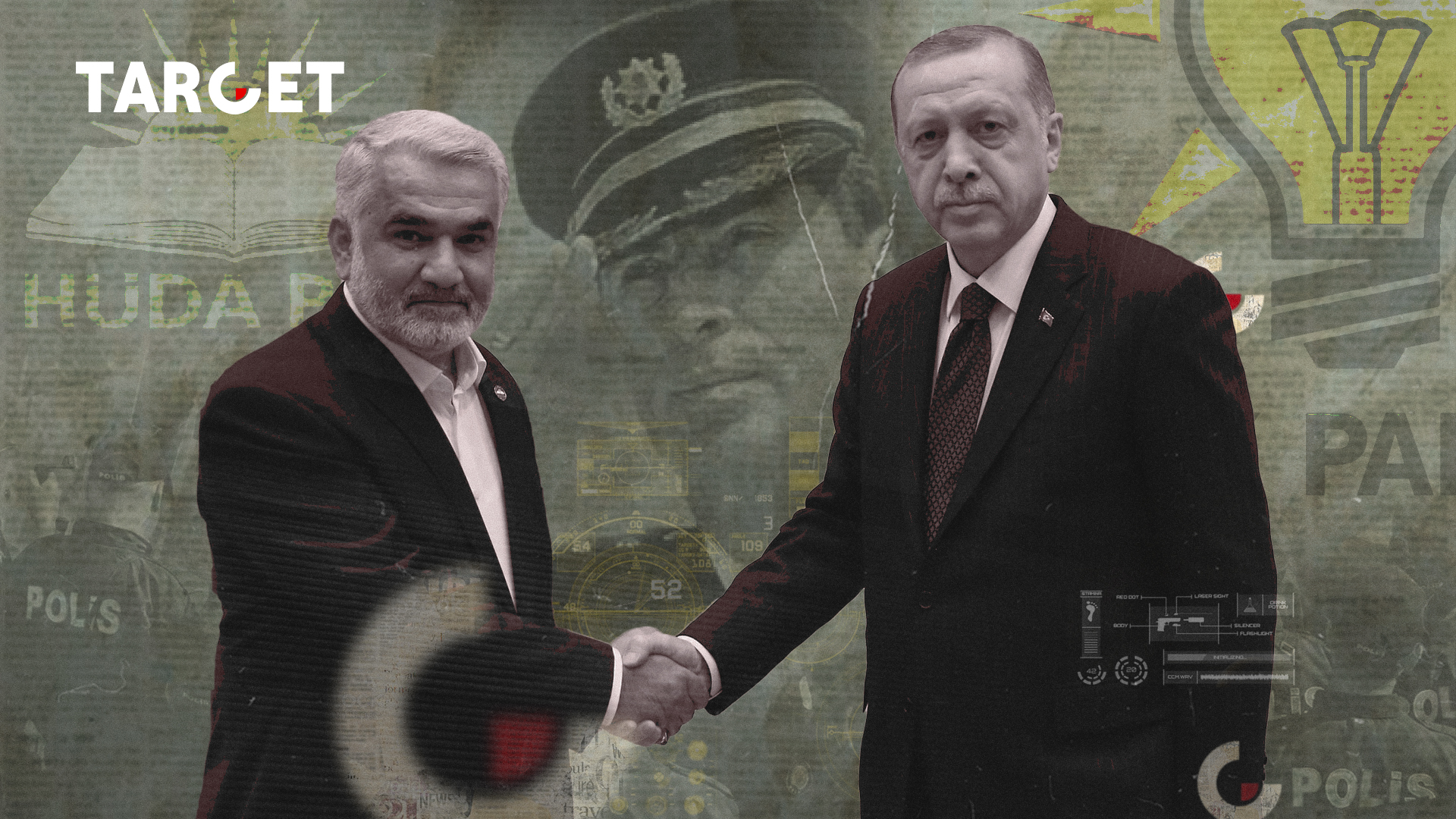
The debates that followed the rapprochement between the Free Cause Party (Hüda-Par) and AKP, which commenced in the 2018 elections, revived after Hüda-Par’s announcement to enter the 2023 parliamentary election in the AKP’s lists of candidates. 4 members of Hüda-Par, including the chairman Zekeriya Yapıcıoğlu, have been included in the AKP list. Today, the party announced its “2023 Elections Vision Document”. Announcing the document, Vice Chair Mahmut Şahin praised the presidential system, called for the criminalization of extra-marital relations, and defended single-sex education.
Hüda-Par, established in 2012, is known for its ties to the Turkish-Kurdish Hizbullah terrorist organization responsible for numerous kidnappings and murders in the 1990s. What are the prominent issues in the arguments about Hüda-Par, the political arm of the armed Hizbullah organization, which has been involved in many massacres in the past?
The atrocities of the radical Islamist Hizbullah
The name of Hizbullah, which has repeatedly admitted to being supported by the state and is also known as “Hizbul-contra” or “Hizbul-atrocity” among the public, was first heard after a jewelry store robbery in Istanbul in October 1984. In the following years, Hizbullah, which was organized in Kurdish provinces under the leadership of Hüseyin Velioğlu, carried out armed attacks against politicians, journalists, authors, and activists affiliated with the Kurdish political movement. Countless people have been abducted by Hizbullah since 1992, many of them recorded as unsolved disappearances. Some names who have lost their lives in assassinations known to be related to Hizbullah: Kurdish politician Mehmet Sincar, Diyarbakir’s police chief Gaffar Okkan, Muslim feminist author Konca Kuriş and journalists Halit Güngen, Hafız Akdemir, Yahya Orhan and Çetin Ababay. The terrorist organization tortured and killed people in various cities with concrete nails and hogtie methods. Some members of Hizbullah, who buried the people they killed in the basements or gardens of their houses, also known as ‘the grave houses’, were released after 10 years of imprisonment.
The transition to the political arena as Hüda-Par and the developing ties with the AKP
After the assassination of Gaffar Okan, Hizbullah began to dissolve. Members of the terrorist organization, who were released after being detained, returned to Kurdish provinces. Years later, they established an association in Diyarbakir; however, it was banned due to its affiliation with Hizbullah. After the closure of the association, it was decided to become a party and thus Hüda-Par was established in 2012.
Hüda-Par consolidated its relations with the AKP after endorsing the president in the 2017 referendum, which gave Erdoğan broad powers. In recent years, many convicted and charged members of Hizbullah have been released by virtue of Erdogan’s change in the judicial system. The process of a mass release of Hizbullah convicts started under the name of “retrial” after the rapprochement of Hüda-Par and AKP. In 2022, the Turkish judiciary released 29 Hizbullah terrorists who were imprisoned for their role in the killing of more than 100 civilians in Diyarbakir in the 1990s. Moreover, 58 members of the terrorist organization with definite life sentences have also been released. While a total of 295 hitmen of Hizbullah were in prison in 2018, there are currently only 22 convicts in prison.
